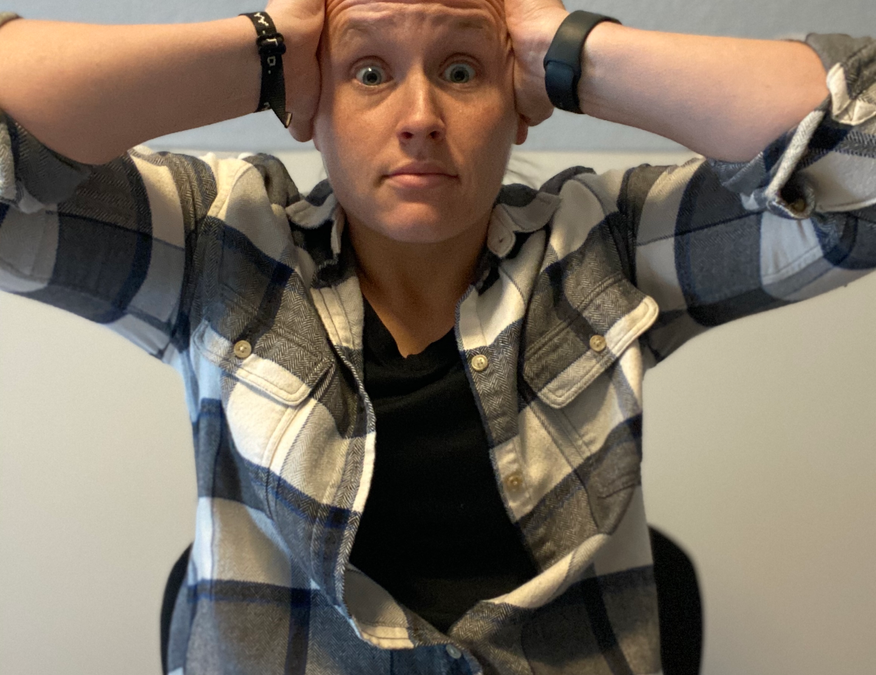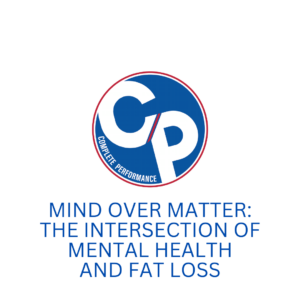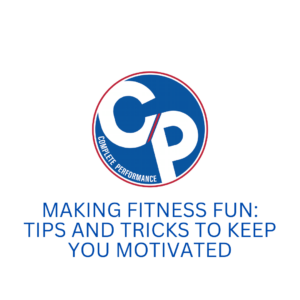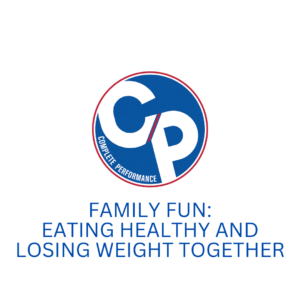55% of Americans report feeling overly stressed in a day.
3 out of 4 Americans report experiencing AT LEAST one stress symptom in the last month.
From those 3 out of 4, here are some other stats to consider:
- 45% reported lying awake at night due to their stress levels.
- 36% reported feeling nervous or anxious.
- 34% report fatigue due to stress.
So, if you didn’t already know or feel this, STRESS IS A BIG DEAL!
Think about it, how many times per day or week do you say things like:
“I’m just too stressed.”
Or “Today was just really stressful.”
Or “I just can’t handle any more stress.”
But there’s something more you need to know about stress being a big deal…
You need to know that stress IS NOT a bad thing!
When you look at those statistics, every single of those shines a negative light on stress that it’s no wonder we’re searching left and right for strategies to get rid of our stress!
But it’s not all bad!
In fact, many arguments can be made saying you NEED stress, which is why I want this blog to help you understand the differences between good and bad stress.
What Is Stress?
First things first – we can’t differentiate between good and bad stress until we understand stress in general.
According to the Cleveland Clinic, stress is defined as:
“The body’s reaction to any change that requires an adjustment or response. “
While stress is typically thought of as an emotional state, the body actually responds to stress in mental, physical, and emotional responses.
Stress is also typically thought of as something negative, when in fact it’s something we NEED to adapt and grow.
It’s very normal (and necessary) to face stress each day so long as it’s the right TYPE of stress.
There are two categories of stress:
Acute Stress
This is the stress that happens suddenly, but also quickly goes away.
Acute stress is typically considered to be positive as it’s a quick jolt in the sympathetic nervous system that shifts the body away from homeostasis and forces it to relocate resources to spark change.
BUT (you had to know it was coming, right?), acute stress does have its downfall…
Think about stubbing your toe.
The first time it happens, it hurts – A LOT! But the pain goes away.
Now, imagine you do it a second time, then a third, and a fourth. Your toe is going to blow up like a balloon to the point it’s near impossible to put it in a shoe or avoid stubbing it on anything else.
This is the same reason too much exercise is a problem.
Or repeated bouts of extended intermittent fasting.
Or repeatedly shorting yourself of sleep.
Or the list really could go on and on, but the point is that repeated bouts of acute stress turns into our second category of stress.
Chronic Stress
Chronic does not go away so quickly…
Chronic stress is long-term and likely something you face day after day. These are the stressful things (typically negative) that really bother you.
The reason chronic stress is so problematic is because it NEVER stops. When stress is always present, you never give your body the ability to adapt, strengthen, or recover. Your body runs and runs until it cannot run any longer.
Think of this like a car.
You fill up your tank at the gas station, and you start to drive. You drive and drive and drive, but never give the car a rest.
What happens?
The car runs out of fuel, and more than likely you’ll have run down the treads on your tires, need an oil change, and need some updates to other internal pieces.
But you don’t do that! You give it a rest, bring it to the shop, and keep refueling before it’s on empty!
The reason chronic stress is so bad for humans is that we treat our bodies worse than our cars…
So, how do we know the difference? How do we differentiate between good and bad stress?
I always like to wrap things up on a positive note, so let’s start with the Bad Stress.
Bad Stress
It’s Viewed as Negative
What you might not realize is that the positive or negative nature of stress is largely dependent on how you VIEW it.
Have you ever thought you HAVE to exercise? Or that your forced to do it? Or my favorite, that you have to work out because of what you ate or that you hate how you look?
Exercise has HUNDREDS of benefits on your body, but when it’s viewed negatively, you’re losing SO MANY of those benefits.
Take a look at how you view stressors – exercise, work, crucial conversations, nutrition, etc. – and that could be the secret to changing your bad stress to good stress.
It’s Unintentional
Bad stress isn’t something you INTEND to face. More than likely, it’s something that’s just a part of your everyday life that’s abnormally stressful.
Unfortunately, it’s unintentional in nature, which means you’re often unaware that it’s even stressing your body.
The solution?
Regularly check in with yourself.
Find out what you’re feeling.
Assess what you’re facing.
And if you really want to limit the “Bad Stress” you face, do this 1 to 2 times DAILY!
It’s Chronic
Chronic is stress is bad, there’s no if’s, and’s, or but’s around it.
When you’re chronically stressed, your sympathetic nervous system (Fight or Flight) runs on overdrive, and never gives your parasympathetic nervous system (Rest and Digest) a chance to run.
In simpler terms, your body is constantly running with an elevated heart rate, dilated vessels, elevated hormone levels, restricted digestion, and tense muscles.
When you’re chronically stressed, you put your body at risk for things like:
- Inability to Lose Body Fat
- Loss of Muscle Tone
- Hormonal Issues
- Gut and Digestive Issues
- Autoimmune Disorders
In the simplest of ways, “Bad Stress” is unintentional, day-to-day stress largely controlled by your perspective that if left unmanaged can put you at risk for some major health risks and diseases.
Good Stress
Out with the bad and in with the good, right?
It’s Intentional & Meaningful
Good Stress is stress you face because you MEANT TO! It’s a stress you’re facing because you had every intention to face it.
Think of this as exercise, an intermittent fast, sky diving, or a quick sprint away from danger.
There’s purpose behind the stressor, and something you prepared to face.
It’s Intermittent & Short-Lived
Good Stress is meant to be short-lived.
It’s something that comes up, you face it or deal with it, then you’re done.
Good Stress sparks the sympathetic nervous system, which stimulates the appropriate response, then once the stressor goes away so too does the sympathetic nervous system response.
It Leaves You Better Off Than You Were Before
This is the stress we WANT!
It’s the stress we NEED to promote change within the body.
It helps you build muscle, lose body fat, get smarter, and overall make change within the body.
You WANT Good Stress to change improve who you are as a human.
Again, one of the biggest differences between Good and Bad Stress is your perception of it. If you view a stressor as a meaningful, lesson-teaching opportunity for growth, your body is more likely to respond to it in a positive way.
So, how do we improve your ability to respond to stress.
First, it’s important to find a healthy balance with stress to allow you to handle more stress better.
How do we do that?
The most important thing is to keep a fit and healthy body. This means you keep your body fed well, trained well, and get enough sleep.
Those things allow you to face stress and elicit the appropriate response.
So, what are some things can alter our ability to respond to stress?
#1 Frame of Mind
Think about how you view things.
Do you view things as improvements or adaptations? Or do you view things as harmful or damaging?
Do you feel forced to workout? Or do you find it as an opportunity to get stronger or improve your fitness?
Consider how you feel failures or setbacks. Do you dwell on them? Do you tell yourself you’re doomed for failure?
What you think largely determines how your body responds to stress. If you’re locked into a growth mindset and looking for ways to adapt and improve, your body will more favorably tolerate stress.
#2 Life Experiences
How you grew up and how you live now are MAJOR factors in your stress response.
If you grew up poor or having faced many challenges, stressors now are not as big of a deal.
You’re more likely to tolerate stressors and view things as “not that big of a deal.”
Think of it like your immune system. As a kid, if you’re exposed to germs and bacteria, your immune system is stronger as an adult.
Same goes for stress.
Face more it in your youth, you’re going to put out a better response to it in the future.
#3 Strong Support Network
When you have people around you to turn to and rely on when you’re stressed, you more favorably respond to stress.
You know what they say, right?
“Two heads are better than one.”
How about MORE than two heads?
Take a look at those people closest to you.
Build a support network who supports you, builds you up, and helps you manage your stress.
#4 Get Better Sleep
There aren’t many of us who get PERFECT sleep, both in quality and quantity.
According to sleep experts, you should aim for 7 hours of sleep a night; however, most sleep experts suggest you can BANK your sleep. That means you should aim for a total of 49 hours of sleep per week.
Where do you fall?
Do you need more?
Are you in bed enough but you just need to improve the QUALITY of your sleep?
Some simple strategies to improve your sleep:
- Plan for more than 7 hours in bed.
- Turn off ALL lights.
- Sleep in a cool room.
- Sleep in loose and comfortable clothing.
- Turn off electronics 60 minutes before bedtime.
#5 Unplug
Today, we LIVE connected through phones, watches, computers, TVs, and every other techy invention out there.
If you’re serious about improving your stress tolerance, look at setting aside some time to unplug. Both daily and weekly.
Remind yourself that that email, text, or call don’t NEED an immediate response.
Personally, I recommend a minimum of 30 minutes unplugged DAILY, and a half of a day unplugged WEEKLY.
#6 Get Outside
Nature is one of the greatest ways to destress out there.
Not only does the sunlight and fresh air work wonders on your body, but the time outside gets you away from your stressful day-to-day life.
“Oh, but it’s cold.”
Or “The weather’s bad.”
Or “I don’t have time.”
None of those are valid excuses…
They’re really just limiting beliefs you’re tellingyourself to get out of getting outside.
Gear up, put on some warm clothes, and take your meetings or work outside!
#7 Use Calming Exercises and Movements
Sounds simple, right?
Everywhere you look someone or something is telling you to meditate or journal to relieve your stress.
You might roll your eyes every time you see or hear it, but don’t you think that if EVERYONE is recommending it that it might have some value?
Here’s the thing, if you give meditation a good college try and it’s NOT working for you, that’s OKAY!
Find SOMETHING that calms you.
For me, I found casual walks and mobility sessions to be the most relaxing. It gives me an opportunity to check in to my body and alleviate any physical stressors or pain points.
The secret is to NOT push it.
Don’t turn it into a workout where you’re stressed about how many calories you’re burning.
Focus on your breath, your movement, and what your body is telling you.
#8 Connect with People
Scroll back up to #3, remember how a strong support network can improve your ability to manage and tolerate stress?
Well, you cannot do that without connecting with people.
Now, this does not mean a text conversation back and forth or a quick phone call on the drive home.
If you’re serious about improving your stress tolerance, I mean genuine face-to-face conversation.
Mask up and socially distance yourself but be in the presence of another.
This allows you to see their face, read emotions, and ACTUALLY connect and build real relationships.
#9 Let Loose
This goes for my fellow super Type A people.
LET LOOSE.
Chill out and RELAX!
Allow your body to just breathe, which in turn allows your parasympathetic nervous system to kick in. That allows your body to recover and better prepare for future, upcoming stressors.
The other cool part about letting loose is that it helps you to build a better relationship with yourself.
Let’s say you let loose, and eat something not on your meal plan. It teaches you that it’s OKAY and that you can recover from this.
Same goes for exercise, alcohol, and work!
#10 Practice Mindfulness
Best for last, right?
Most of us are so disconnected from our own minds that we don’t realize we’re stressed out.
That’s why you NEED to PRACTICE mindfulness.
Most of us are so disconnected from our internal selves that we have to relearn the skill of mindfulness.
Separate your tasks.
Spend time alone with yourself.
Take time to check in with yourself.
Becoming more mindful allows you to become more aware, which means you can better and more appropriately respond to any stressor you face.
About The Author

Jordan Davies is the Co-Owner of Complete Performance. Jordan has her B.S. in Exercise Science and Psychology, and her M.A. in Holistic Health Studies. She is a CSCS certified strength and conditioning coach, and a PN-1 and NCI-1 certified nutrition coach. She loves to study how the human body needs to be moved and nourished and making that fit to your unique lifestyle. Click Here Now to Apply for Coaching with Jordan.




